 Microplastics, which are tiny pieces of plastic particles less than 5 millimeters in size, have now been found in human placentas. To find tiny plastic particles on both sides of the placenta (the baby's side and the mother's side), as well as in the placental membranes, is an alarming finding! Why is this occurring? And are they causing harm to the developing fetus?
Microplastics, which are tiny pieces of plastic particles less than 5 millimeters in size, have now been found in human placentas. To find tiny plastic particles on both sides of the placenta (the baby's side and the mother's side), as well as in the placental membranes, is an alarming finding! Why is this occurring? And are they causing harm to the developing fetus?
First, it is important to realize that we are surrounded by plastic in products that we use, and also in our environment. Eventually all plastic degrades into tiny pieces called microplastics and nanoplastics. These tiny plastic pieces are found throughout the world, including in the oceans and rivers, indoor air, and the food we eat and water we drink, especially bottled water. The particles get into us, and while some is excreted in the feces, they also get into our organs.
The Italian researchers examined small portions of 6 human placentas (from normal pregnancies) and found a total of 12 plastic particles in 4 of the placentas. The researchers said that all the particles were "pigmented" (colored), with 3 being tiny polypropylene pieces, and the other 9 could only be identified as pigments (e.g. from man-made coatings, paints, adhesives, cosmetics, and personal care products).
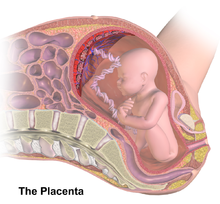
The researchers did not know how the plastic particles entered the mother's blood stream and so got into the placenta - whether it was from the mother's respiratory system (breathed in) or the gastrointestinal system (from ingested foods). They thought that differences in foods eaten and lifestyles might result in why four placentas had plastic particles and two others not.
A big concern with microplastics in humans, especially developing fetuses, is that they can contain substances that can act as endocrine (hormone) disruptors and so could cause long-term effects on human health. Will they have an effect on the developing immune system? At this point we do not know. We have many questions and studies are needed.
What should one do to lower exposure to plastic particles? There are many things one can do. Especially important is to no longer drink bottled water or other beverages in plastic bottles, or store or cook food in plastic containers. List of tips on how to lower exposure to plastics and the harmful chemicals in them - Avoiding Harmful Chemicals
Excerpts from The Guardian - Microplastics revealed in the placentas of unborn babies
Microplastic particles have been revealed in the placentas of unborn babies for the first time, which the researchers said was “a matter of great concern”. ...continue reading "Tiny Plastic Particles Found In Human Placentas"

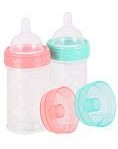 It turns out that plastic baby bottles shed millions of tiny plastic particles (microplastics) into the breast milk, formula, or water in them. At this point we don't really know what ingesting multitudes of microplastics every day does to a person, but assume that it is not beneficial and we should try to lower how much we ingest. (Microplastics are turning up in foods and water, especially bottled water - we are
It turns out that plastic baby bottles shed millions of tiny plastic particles (microplastics) into the breast milk, formula, or water in them. At this point we don't really know what ingesting multitudes of microplastics every day does to a person, but assume that it is not beneficial and we should try to lower how much we ingest. (Microplastics are turning up in foods and water, especially bottled water - we are 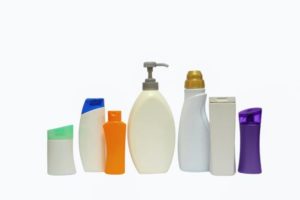 We use so much plastic that we are now surrounded by plastic. But eventually all plastic degrades into tiny pieces called microplastics and nanoplastics. These tiny plastic pieces are found throughout the world, including in the
We use so much plastic that we are now surrounded by plastic. But eventually all plastic degrades into tiny pieces called microplastics and nanoplastics. These tiny plastic pieces are found throughout the world, including in the 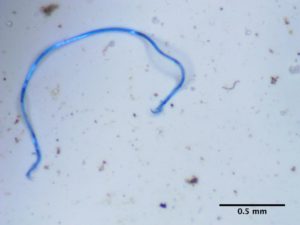 It turns out that it rains tons and tons of tiny pieces of plastic each year! These tiny pieces of plastic, called microplastics, are carried like dust in the wind and air currents around the earth, and eventually come down like dust. Or particles from nearby urban areas can come down in rain, storms, and snow.
It turns out that it rains tons and tons of tiny pieces of plastic each year! These tiny pieces of plastic, called microplastics, are carried like dust in the wind and air currents around the earth, and eventually come down like dust. Or particles from nearby urban areas can come down in rain, storms, and snow.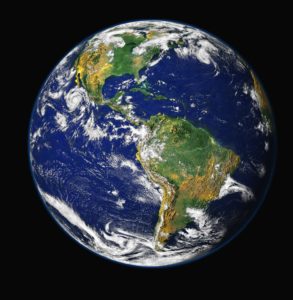 We love plastic, and use plastics in basically everything. However, with time and wear and tear, plastics are worn down, and little plastic microparticles are released into the air. These microplastics are less than 5 mm (millimeters) long - about the size of a
We love plastic, and use plastics in basically everything. However, with time and wear and tear, plastics are worn down, and little plastic microparticles are released into the air. These microplastics are less than 5 mm (millimeters) long - about the size of a 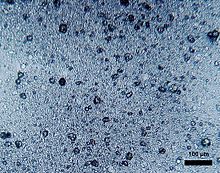
 This is part 2 of posts about tiny particles of plastic (microfibers) in our water - which is a form of water pollution. These plastic fibers are smaller than 5 mm, and are
This is part 2 of posts about tiny particles of plastic (microfibers) in our water - which is a form of water pollution. These plastic fibers are smaller than 5 mm, and are